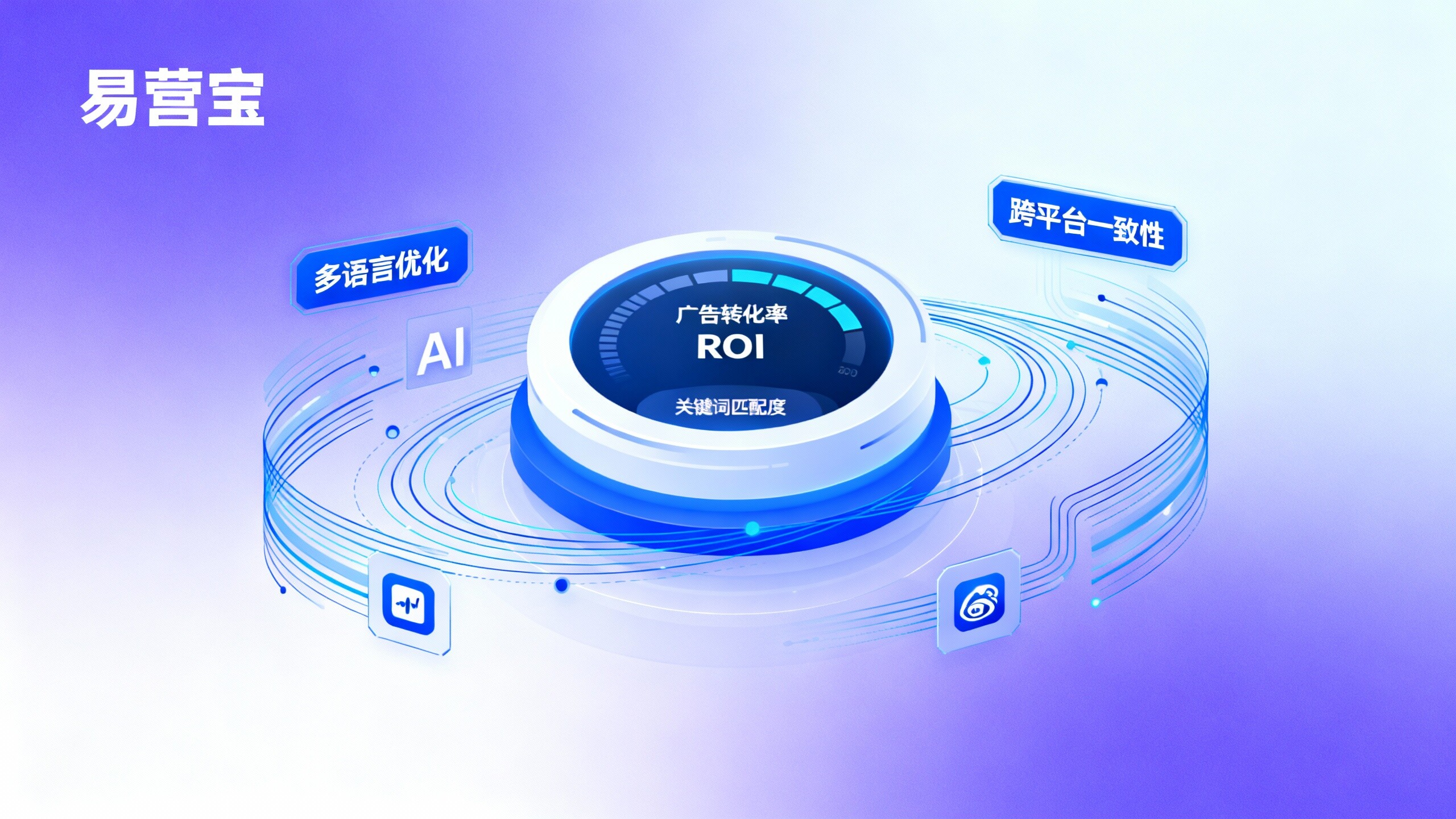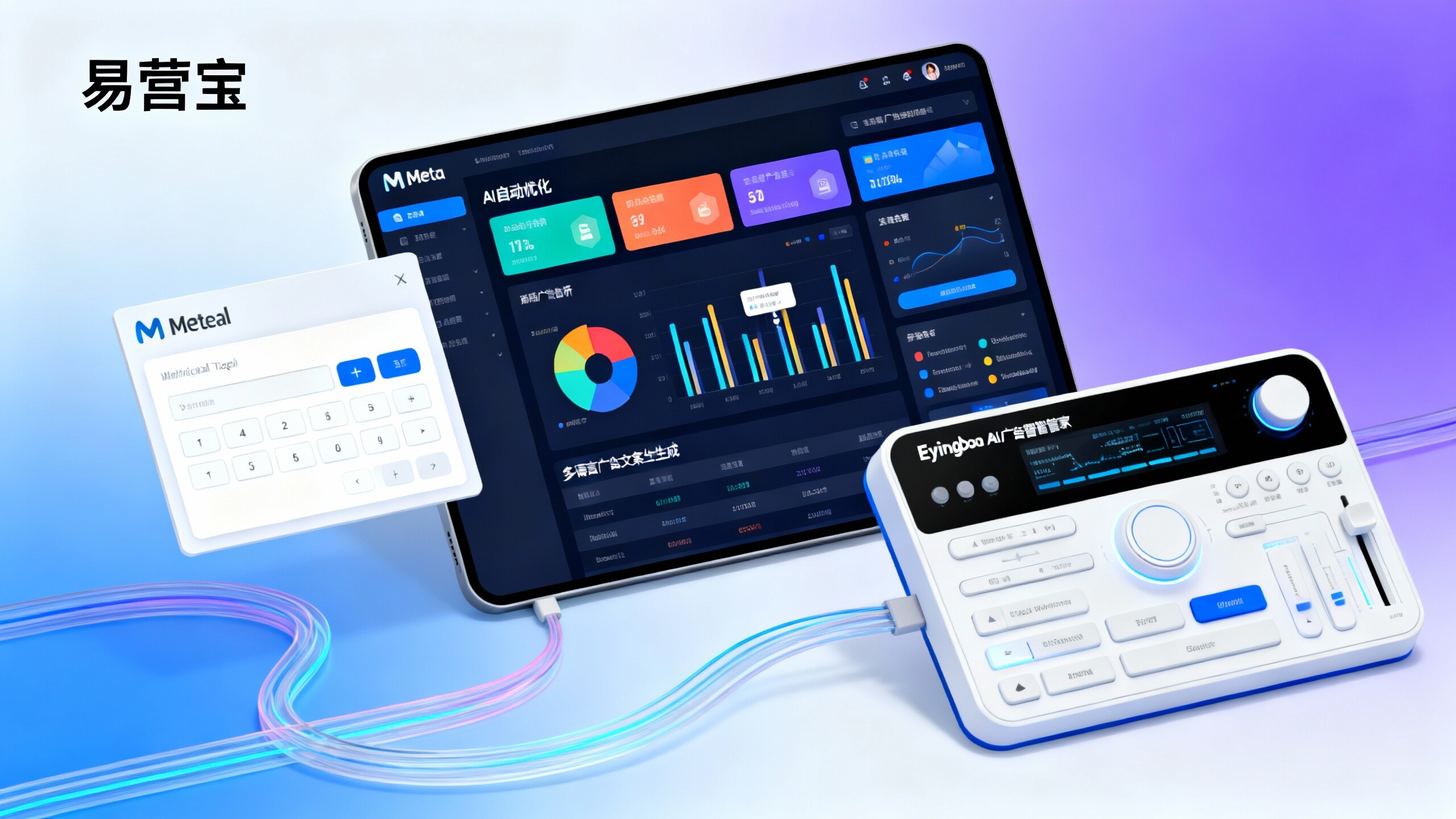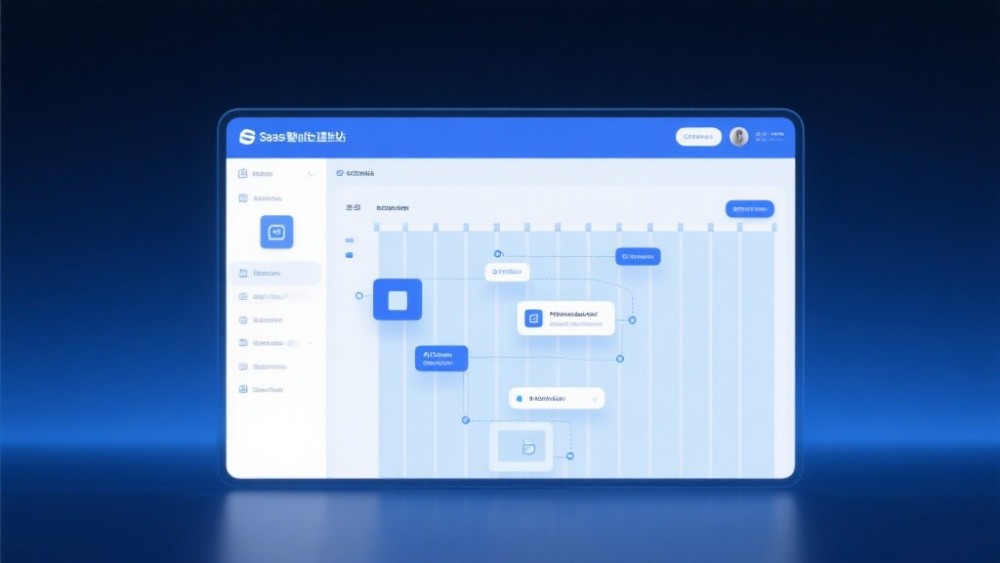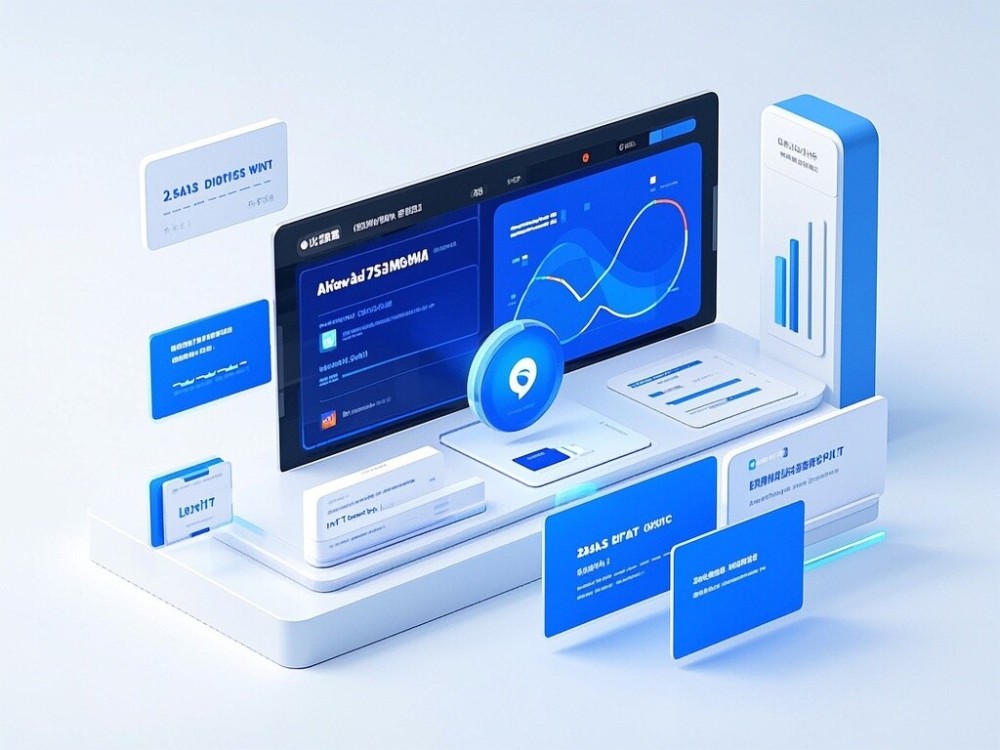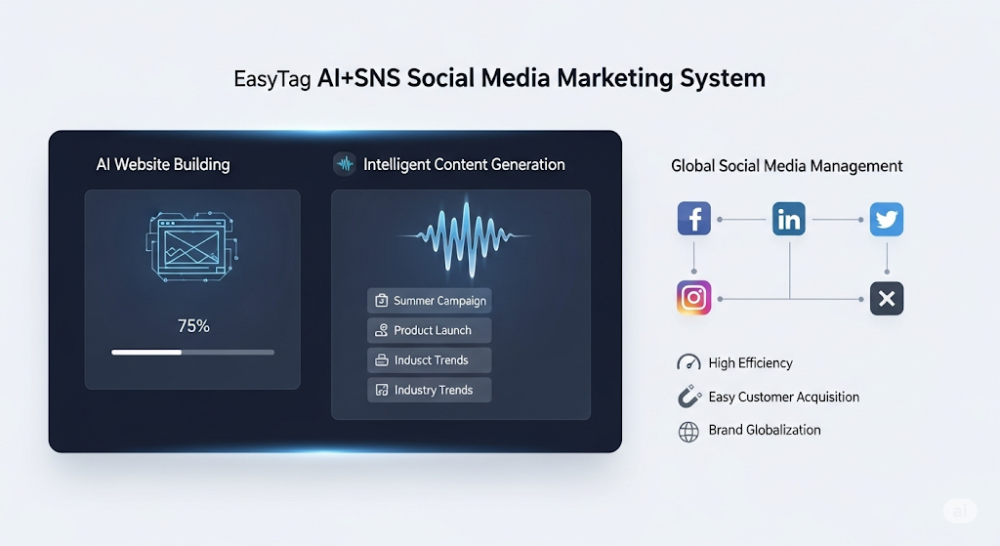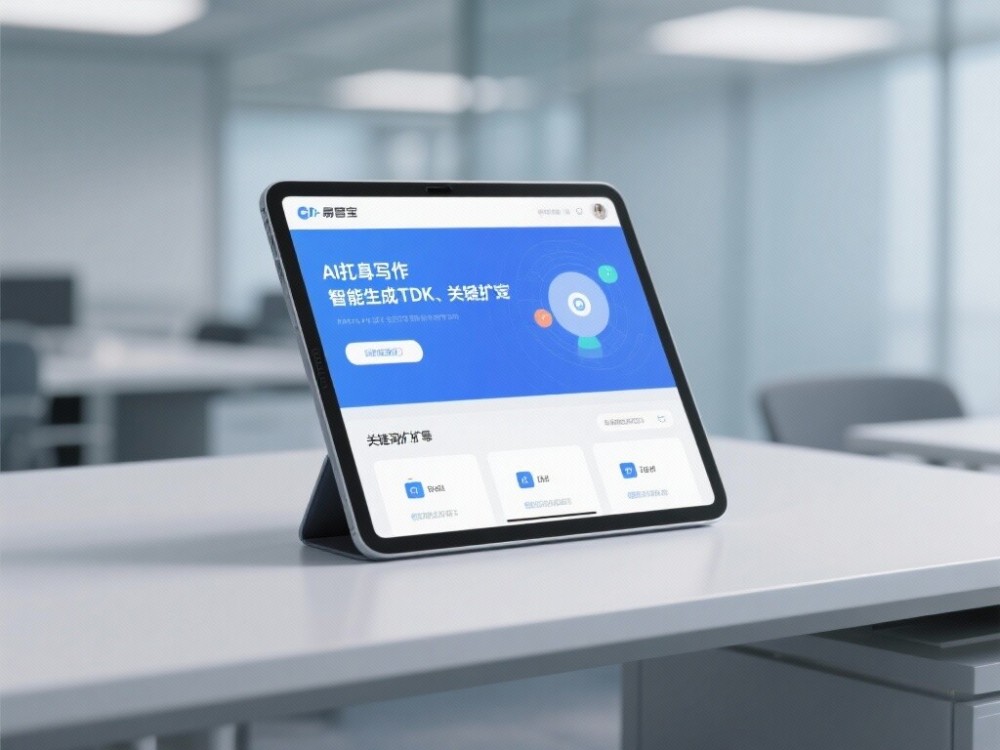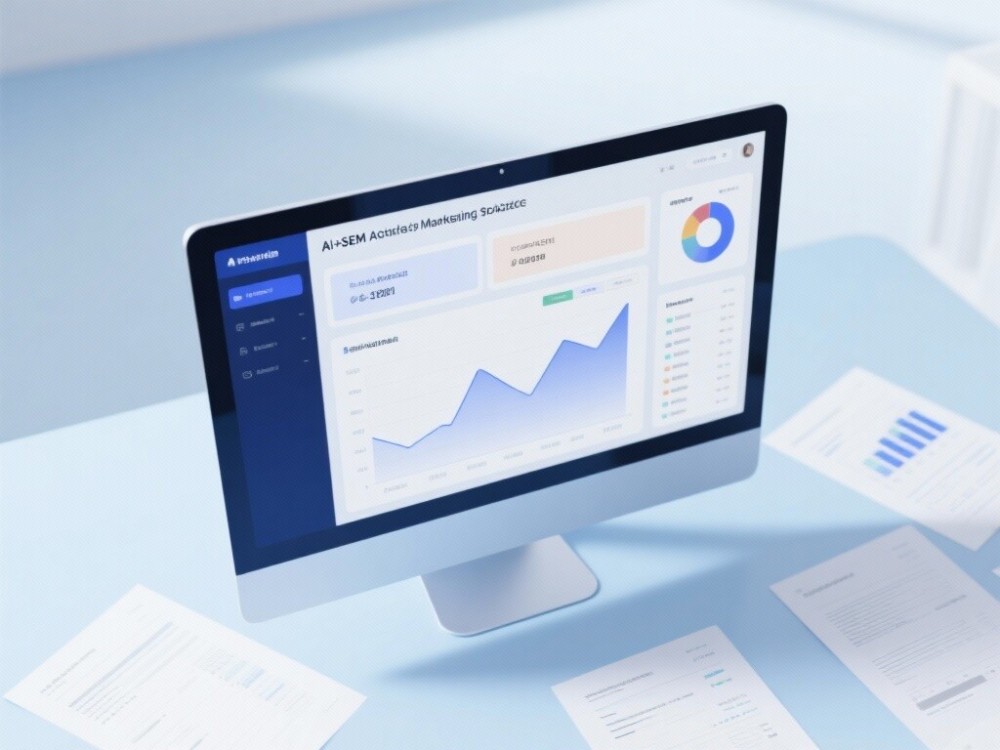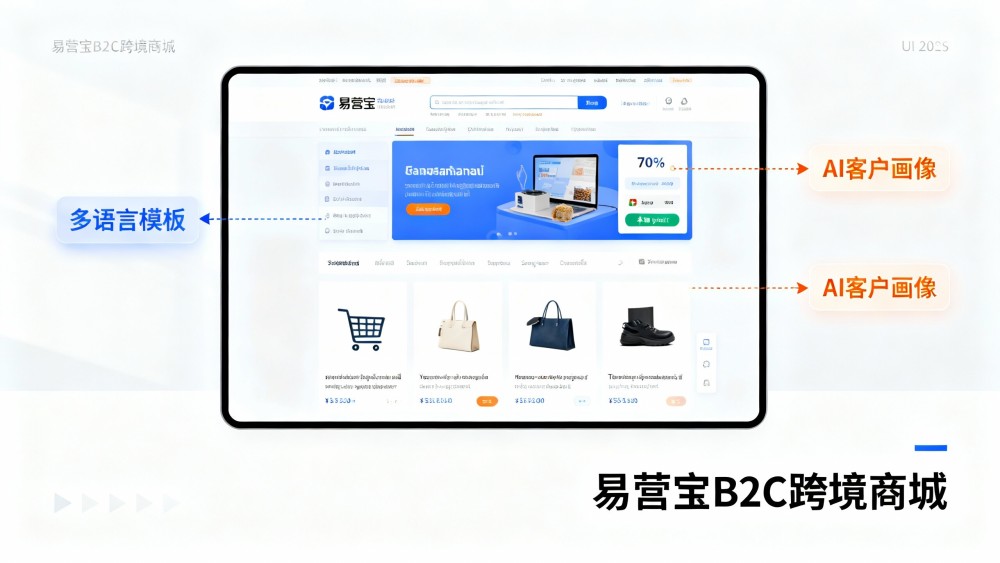- B2B Foreign Trade Website Price Comparison: Is It More Cost-Effective to Choose a Package or Custom Development?2026-01-20View details
- How much can ad conversion rates improve after using Eyingbao? What are the influencing factors?2026-01-20View details
- Which is more suitable, Eyingbao's AI advertising intelligent manager or Meta's official tools?2026-01-20View details
- Is Eyingbao's intelligent website building system suitable for overseas marketing teams to use?2026-01-20View details
- Does EasyAd's advertising performance have guarantees? How does the service mechanism work?2026-01-18View details
- Is the cost of using AI advertising smart manager high? How to calculate the budget more reasonably2026-01-18View details
- How to implement multilingual advertising optimization solutions in the general internet industry2026-01-18View details
- Is EasyAd AI Advertising Smart Manager easy to use? Is it suitable for general internet service companies?2026-01-19View details
5 Key Metrics Decision Makers Can't Ignore When Choosing a SaaS Marketing Platform
Introduction
Decision makers must grasp these five indicators when selecting a SaaS marketing platform, taking into account both responsive website SEO optimization and the AI+SEO dual engine to help independent foreign trade sites expand overseas efficiently. Choosing a platform is not only a choice of functionality, but also an extension of a company's growth path and organizational capabilities. Information researchers want to see verifiable data; users/operators care about ease of use and daily efficiency; corporate decision makers are more concerned about input-output ratios and compliance risks. This article focuses on the enterprise service SaaS field, combining responsive website SEO optimization, AI+SEO dual engine optimization systems and actual overseas scenarios, systematically breaking down the five quantifiable selection indicators, providing comparative analysis, purchasing guidelines and implementation suggestions to help you quickly identify value and risks among numerous SaaS marketing platforms.
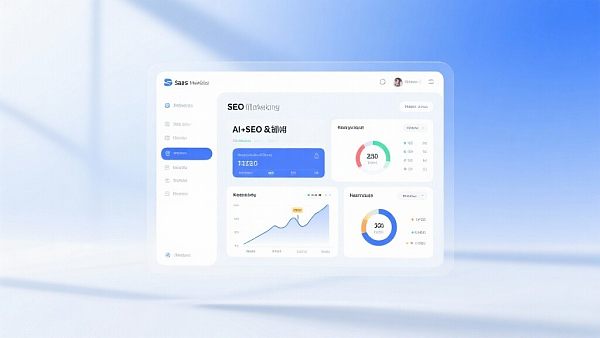
1. Definition and key indicators: Why are these 5 the most critical?
When selecting a SaaS marketing platform, we've identified five key criteria: SEO capabilities and responsive performance, AI and automation capabilities, scalability and multilingual coverage, security, compliance, and stability, and technical and service support. First, responsive website SEO optimization has become a fundamental capability for independent foreign trade websites: mobile-friendliness, structured data, fast loading times, and multilingual SEO strategies directly impact traffic acquisition costs. Second, an AI+SEO dual-engine optimization system enables automated batch TDK generation, keyword expansion, and scalable content production, significantly reducing labor costs and increasing reach. Third, scalability determines whether the platform can smoothly upgrade as business complexity grows. This includes APIs, third-party integrations (such as Google Ads and Meta), and server CDN distribution. Fourth, security, compliance, and stability, including SSL, DDoS protection, and data export compliance, are particularly crucial for cross-border e-commerce and independent foreign trade websites. Finally, technical and localized service support directly impact deployment speed and conversion rates. Platform training, operations, and local partner networks (such as Yiyingbao's regional partnership model and Google Premier Partner status) are key factors. Understanding these definitions helps transform abstract requirements into quantifiable evaluation items, allowing you to take the initiative in supplier communications.
2. Application Scenarios and Comparative Analysis: Focus of Different Roles
Different audiences focus on different aspects when selecting a product. Researchers prioritize metric visualization and data-driven evidence, often examining key performance indicators (KPIs) such as website load time, SEO score improvement, keyword rankings, and organic traffic growth. Users/operators prioritize platform usability, including support for intelligent TDK generation, AI-powered batch writing, and one-click publishing to social media platforms, as well as ensuring backend workflows are aligned with daily workflows. Business decision-makers prioritize long-term ROI, compliance risks, and scalability. Comparing SaaS marketing platforms with traditional local deployments: SaaS offers significant advantages in speed to market, continuous iteration, and cost structure, but considerations should be given to data controllability and compliance requirements. The table below provides typical comparison criteria to facilitate scoring and decision-making during procurement evaluations.
3. Procurement Guidelines and Technical Performance Verification: Step-by-Step Acceptance of Qualified Platforms
During the procurement process, we recommend following a "metricization-verification-pilot" process. The first step is to develop a scorecard (including responsive website SEO optimization capabilities, AI automation level, CDN and multilingual support, API and third-party integration, SLA and security terms, and pricing and ROI models). Second, require vendors to provide real-world examples and data, such as the percentage increase in traffic and conversions achieved after integrating their independent foreign trade websites into the platform. Third, conduct a four- to eight-week pilot, verifying keyword coverage, TDK quality, site speed, and advertising ROI. Regarding technical performance, focus on: page load time (recommended <2.5s for mobile), structured data support, dynamic rendering/SSR solutions, URL strategies for multilingual SEO (subfolder vs. subdomain), and the controllability and originality of AI-generated content. To launch content and advertising experiments more quickly, consider integrated products that integrate AI batch writing, intelligent TDK generation, and precise keyword expansion to reduce manual effort and improve coverage efficiency. It is recommended to incorporate real business scenarios (such as holiday promotions and product hot keyword attacks) into the pilot to measure ROI and operating costs.
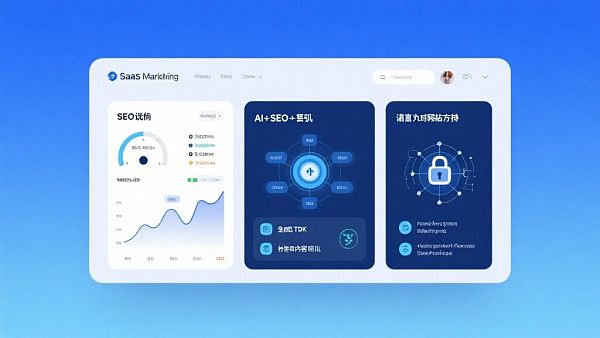
IV. Industry Scenarios, Clarification of Misconceptions, Customer Case Studies, and FAQs
In industries like manufacturing, cross-border e-commerce, and education, independent websites for foreign trade play a crucial role in brand validation and long-term traffic accumulation. Common misconceptions include believing that advertising alone can replace SEO, treating AI-generated content as a complete replacement for human creative work, and ignoring the conversion differences brought about by multilingual localization. In reality, the best practice is to leverage AI for keyword expansion, TDK automation, and creative generation, while retaining human decision-making power over strategy and brand voice. Below is a brief customer case study and FAQ: Case study: After integrating intelligent website building and an AI marketing engine, a small- to medium-sized foreign trade B2B company saw its independent website load speed increase by 40%, its SEO score improve by 35%, and organic traffic increase significantly within three months, while reducing advertising costs by 20%. Frequently asked questions: 1) How can I ensure that AI-generated content is not excessively repetitive? Answer: Choose a product that features NLP originality detection and multimodal generation strategies, combined with a manual review process. 2) How should multilingual SEO be implemented? Answer: A unique URL structure, AI translation, and localized keyword development are preferred. 3) Does the SaaS platform support integration with third-party advertising accounts? Answer: Major platforms support integration with Google Ads, Metadata, and Yandex and provide diagnostic tools. Why choose us: If your goal is to achieve scalable growth for your independent foreign trade website while balancing responsive website SEO optimization with advertising cost reduction and efficiency gains, prioritize vendors with AI and big data capabilities, global CDN support, and localized service teams. As a Google Premier Partner with multiple patented technologies, Yiyingbao offers one-stop AI and SEO marketing solutions, helping companies achieve measurable growth on their global expansion journey. For more information or to verify your needs, visit our AI and SEO marketing solutions page to learn about product capabilities and apply for a pilot program.
Call to Action
If you're a researcher, we recommend downloading the scorecard and requesting a third-party verification report. If you're a user/operator, we recommend applying for a trial and experiencing the automated TDK generation and one-click publishing process. If you're a business decision-maker, we recommend using pilot data as a basis for quarterly ROI assessment and gradual investment scaling. Contact us to start your SaaS marketing platform comparison and pilot evaluation to ensure every technology investment drives measurable business growth.
Related Articles
![B2B Foreign Trade Website Price Comparison: Is It More Cost-Effective to Choose a Package or Custom Development? B2B Foreign Trade Website Price Comparison: Is It More Cost-Effective to Choose a Package or Custom Development?]() B2B Foreign Trade Website Price Comparison: Is It More Cost-Effective to Choose a Package or Custom Development?
B2B Foreign Trade Website Price Comparison: Is It More Cost-Effective to Choose a Package or Custom Development?![How much can ad conversion rates improve after using Eyingbao? What are the influencing factors? How much can ad conversion rates improve after using Eyingbao? What are the influencing factors?]() How much can ad conversion rates improve after using Eyingbao? What are the influencing factors?
How much can ad conversion rates improve after using Eyingbao? What are the influencing factors?![Which is more suitable, Eyingbao's AI advertising intelligent manager or Meta's official tools? Which is more suitable, Eyingbao's AI advertising intelligent manager or Meta's official tools?]() Which is more suitable, Eyingbao's AI advertising intelligent manager or Meta's official tools?
Which is more suitable, Eyingbao's AI advertising intelligent manager or Meta's official tools?
Related Products



